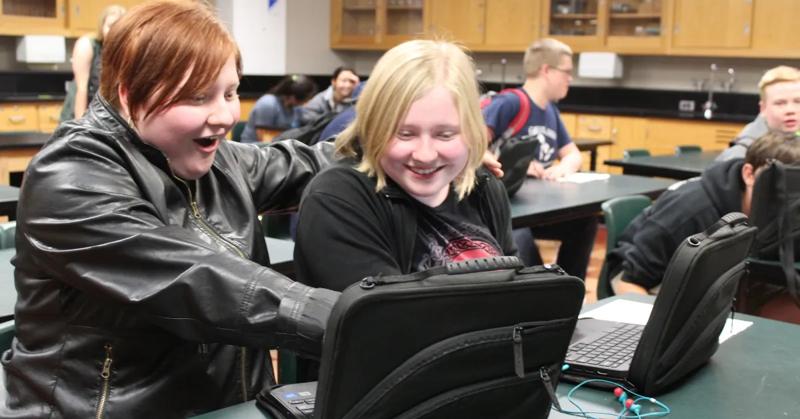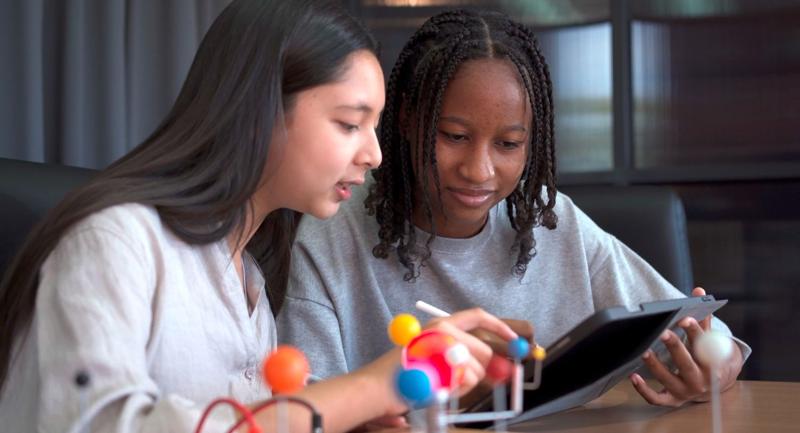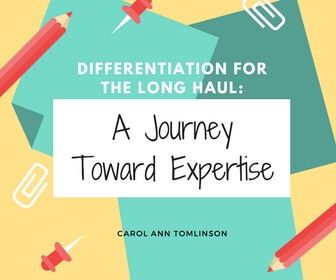Sight word knowledge—or the ability to recognize words at a glance—plays a pivotal role in enhancing students' reading skills. The more automatic the reading process, the more cognitive bandwidth is available to students for comprehending and analyzing texts. In the video that accompanies Douglas Fisher and Nancy Frey's latest column, two teachers model strategies to help secondary students expand their repertoire of sight words.
These educators identify challenging words that might be hindering their students' reading fluency within specific subjects. In one high school classroom, Ethnic Studies teacher Yves Ruelas introduces the term "apartheid" as part of a unit on systems of power. He explains that when learning new vocabulary, there is often "that little trick in the word that might make it difficult for you all to spell and to understand." But once students can identify complex terms as part of their sight word bank, "it'll be that much easier for you to know what that word means in the context of the text," he says.
Ruelas begins by briefly defining "apartheid" before having students write it independently, taking their best guess at its spelling. He then writes it on the board and chunks the word into smaller units—"apar," "the," and "id"—leading students through a practice of rhythmically tapping the word chunks onto their arms. As students tap their arms, they spell the word aloud with Ruelas: "A-p-a-r" at the shoulder, "t-h-e" at the elbow, and "i-d" on their wrists. When students write "apartheid" a second time, they are much more successful in accurately spelling and pronouncing this new vocabulary term.
In another instance, Nick Swift, an instructor in a fire technology course, highlights how sight word instruction benefits students' communication. He notes that the fire cadets in his classroom have been hesitant to use the term "obstruction" because of uncertainty around pronunciation, spelling, and meaning. To increase students' confidence about using this word, he explains its meaning in-depth, drawing from dictionary definitions and asking students to define "obstructions" in the context of firefighting.
"What would an 'obstruction' be for us?" he asks. Students are eager to answer, offering contextual responses like trees, gutters, power lines, debris, and more. "That all prevents us from raising a ladder up," Swift explains. By contextualizing the term's significance within the field, he reinforces its application in practical scenarios, aiding students’ successful comprehension and usage.
Like Ruelas, Swift then walks students through a series of arm taps, chunking “obstructions” into three segments to assist them in internalizing the word's structure and pronunciation. Students follow along with the spelling and pronunciation exercise, then write "obstruction" with accuracy.
These teachers' strategies help students overcome word-related hurdles, boosting their bank of sight words and easing reading fluency. By breaking words into manageable units and emphasizing pronunciation, spelling, and contextual understanding, educators can make word recognition more automatic, increasing students' capacity to focus on reading comprehension.
 Teaching Strategies
Teaching StrategiesSeptember 2023 / Boosting Sight Reading
2 years ago





